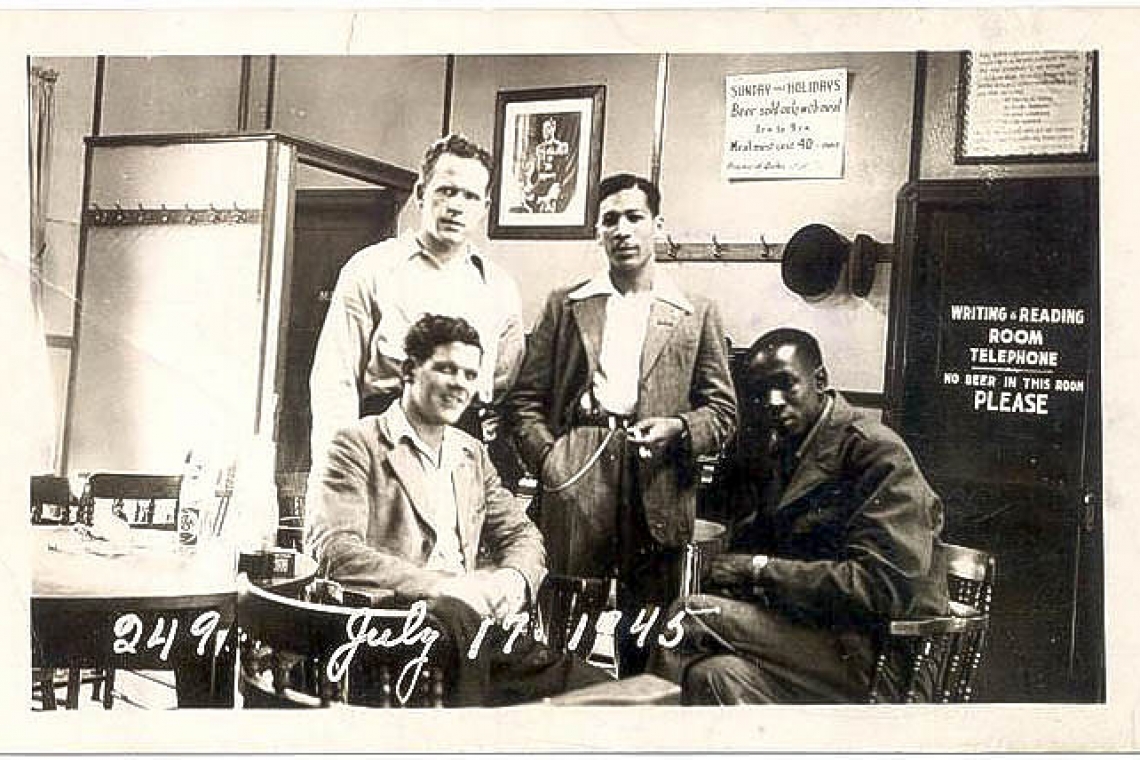Caption: Lionel Romney in 1945.
By Mark Yokoyama
Mary L. Romney-Schaab is the author of An Afro-Caribbean in the Nazi Era: From Papiamentu to German. It is the true story of her father, Lionel Romney, of St. Martin. It includes an account of his time imprisoned in a Nazi concentration camp. In an interview, she shared advice about recording oral history with a family member.
What advice do you have for those who want to do oral histories with the elders in their families? Do you have tips for those who may have tried, but can’t get the older people to talk?
Many memories held by the elders are pleasant ones that they want to share. They often love the opportunity to talk about these and will do it readily. Many valuable insights into family history can be gained from these wonderful stories.
However, I believe that there are many other elderly people who are inhibited about telling their stories because our people have suffered so much in so many geographical, social, economic, educational, professional, and historical contexts. Their memories are often painful, so they don’t want to inflict that pain on their loved ones. Rather, they choose to remain silent.
Plus, many of them have been traumatized by their experiences, so they try to bury them with their silence. Of course, the reality is that silence only prolongs the trauma, and talking about the trauma is the key to healing from it.
The elders often don’t want to talk to their own adult children about their past lives, partly because they don’t want to hurt them with painful memories, but also because they don’t want the children to judge them. These fears may be conscious or subconscious. So perhaps a good approach is to have grandchildren, nieces, nephews, great-nieces or -nephews, or even strangers (or others outside the family) to record the oral history interviews. It’s amazing how quickly an older person will open up to a stranger.
This is partly because they don’t have the same concerns about how that person will feel about them or their story. Again, some of these inhibitions may be subconscious. So sometimes it’s better to prepare some questions and let someone outside the family ask them. The key is to record the interviews, especially on video.
One advantage to having an outsider ask the questions is that if the elder feels that the interviewer already knows his/her story, he/she will intentionally omit some important background information or interesting details. This might be very valuable information that future generations will need in order to make more sense of the story when they hear it many years hence.
What are some pitfalls to avoid when recording oral history?
It took me over 20 years to get my father to talk to me enough to do an oral history with him. So don’t be discouraged if your older parent rejects your requests to interview him/her. Just keep trying in different ways.
Don’t think of your oral history project as one single interview. Think of it as an ongoing process because both you and the elder might take a while to get used to the interviewing process and you can grow in it together. You learn about the process as you proceed through the interviews, and you improve your strategies and techniques as you gain experience.
Don’t be inflexible in your agenda. Be prepared to jettison your own agenda. If the elder doesn’t answer your questions, just follow their memories even if they lead the interview in a different direction than the one you’d planned. Just ask your questions again in the next interview. Most importantly, remember that your role is to be a listener rather than a speaker and a follower rather than a leader.
Do you have a question about how to do an oral history? Send a message to This email address is being protected from spambots. You need JavaScript enabled to view it. or to The Daily Herald. Find Mary Romney-Schaab’s book about her father’s life at Amazon.com







